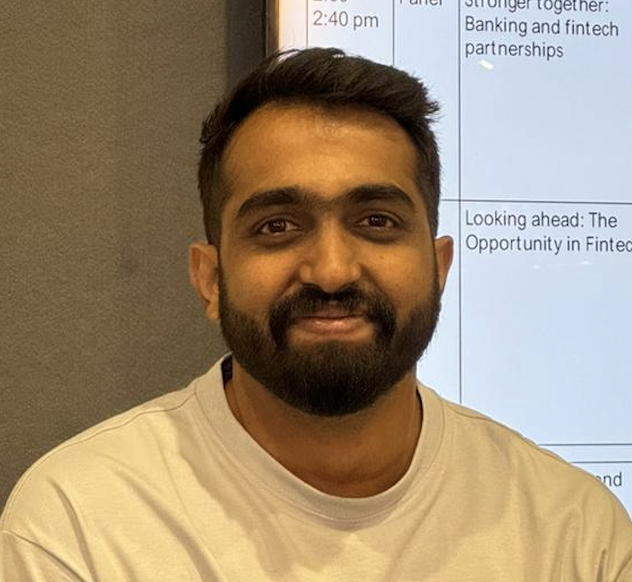
India has always held a lot of promise for investors, with predicted annual growth of 8%, well-performing capital markets, decent regulatory environment and young workforce. But Indian investors and startups haven’t always had the access to capital markets that they could have enjoyed — this is something that Zerodha, one of India’s largest stockbrokers, wanted to change.
Back in 2016, when corporate venture capital was still extremely rare in the country, Zerodha launched a venturing arm, Rainmatter, that it hoped would seed the ecosystems for Indian startups. It was a brainchild of Nithin Kamath, CEO of Zerodha, who became interested in the capabilities of corporate venture funds.
Rainmatter started out investing in entrepreneurs in fintech, but has since expanded its remit.
Dinesh Pai, is the head of investments at Rainmatter

“While we started out by backing tech entrepreneurs who were helping people do better with their money, it has now extended to those companies that are helping people make healthier choices, getting educated, and those who are working on the much harder problems of climate change and creating livelihoods,” says Pai.
As Zerodha steadily grew profitable, so Rainmatter too, began benefitting from it and was able to grow its fund. Today the company has partnered with over 90 start-ups and invested close to $60m.
Now, as a new coalition government comes into power in India with a promise of putting the economy and growth very much at the core of policies, Pai believes there is scope for a further burst of growth for startups and CVC investors.
While no new policies have yet emerged at this early stage on government formation, it is fairly certain growth and attracting foreign investment will continue to be major drivers. The landscape for startup funding has changed in recent years, which can further boost capital inflows, says Pai.
“I would estimate about one fifth of the deals now involve CVCs, and the involvement is on the rise.”
“Whilst there is less money available since 2021, there is still lots of capital available for startups that are looking at building a business with moats such as deep consumer insights, expertise in the sector and of course operational profitability,” he says.
One of the key benefits to CVCs is that attitudes to being a startup entrepreneur have changed as the sector has matured.
“Now entrepreneurship is considered a genuine profession – which is probably the biggest tailwind for the Indian startup environment. And to top it all there is tremendous government support for startups – for instance there are carve outs in funding for deep tech and manufacturing sectors backed by openness to even procure from these startups,” notes Pai.
“I would estimate about one fifth of the deals now involve CVCs, and the involvement is on the rise,” he adds.
India needs patient capital from corporations
According to Pai, Rainmatter wants to offer support for startups across all stages – early, seed, series A and beyond as well.
“While we do fewer late-stage investments such as Series A and beyond, we have built the muscle internally to also evaluate some of the mature businesses over a period of time,” he says.
“We firmly believe that in India it takes about 10-15 years to build a successful business.”
Key sectors for Rainmatter are fintech, climate and health – sectors that are critical for Indian economic prosperity.
“We have no exit mandates like other investors. We firmly believe that in India it takes about 10-15 years to build a successful business, and patient capital can help immensely towards this. Beyond being patient, we also try to ideate with founders and help out with learnings from across the portfolio,” says Pai.
For Rainmatter, exits and return on investment are not always the key motivators. It wants to offer what it calls “patient capital” which is long-term investments or with the ability to stay as an investor for indefinite amount of time.
“Patient capital with no exit mandates that founders can benefit from when building an enterprise, are important in India specifically, where unlike in developed countries, it can take much longer to become resilient and sustainable,” Pai says.
India’s startup scene has traditionally been heavily reliant on families’ deep pockets for seed money but as the country’s economy grows, more professional venture capitalists are coming in to seek startups to back.
When asked about what drives the actual investment process, and how to find the right targets in the early stages, Pai explains that it is a mix of gut feeling and intuition.
“We spend a lot of time discussing as a team on why a certain investment is to be made, and we try to answer questions we have, and note down the risks there are. It is only after this we depend on gut feeling,” he says.
India is still besieged with problems that are typical to a growing economy, such as lack of clean water, poverty and increasing pollution. Pai believes startups will be instrumental to alleviating these, and that CVC investors can help make their way smoother.
“A CVC with patient capital, resources, mentorship and expertise can certainly guide startups in developing sectors through ups and downs,” he says. “Being able to consistently find new ways to add value to our startups is something we find challenging. We look at our investments more from the angle of wanting to help out these startups.”
As India’s economy prepares for its next leap forward, Rainmatter, too, is looking to evolve.
“We will perhaps be a better version of ourselves in five years. But the philosophy towards being a lean team, focusing on sectors we understand, and the desire to constantly add value beyond capital to our startups will certainly be the constants,” says Pai.
